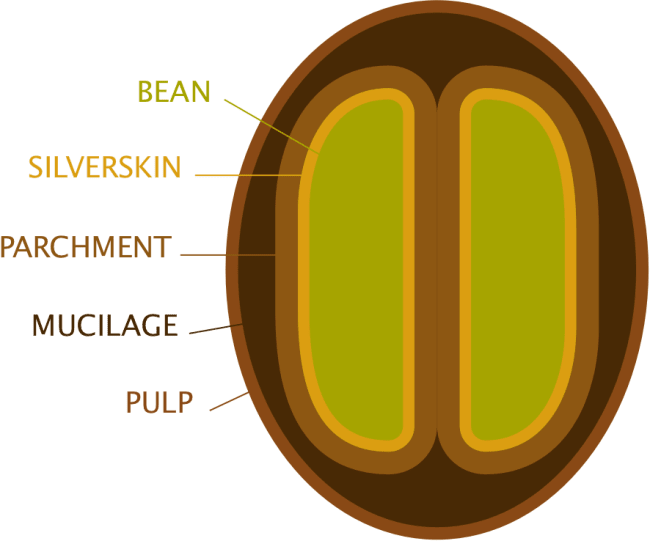For many, the day doesn’t start until that first morning coffee is brewed and down the hatch. But aside from tasting great and providing us with some much-needed wake-up fuel, does coffee have any extra benefits?
Plenty of studies make huge sweeping claims, and although we don’t profess to be health experts, we are a curious bunch. So, we asked professional nutritionist and doctor, Ellie Busby of Vojo Health and Dr Deborah Lee of Dr Fox Online Pharmacy, to share their professional opinions on the benefits of coffee.

Benefit #1 - Improved cognitive function
One of coffee’s main appeals is its ability to jump start your brain and body in the morning.
Ellie explains the science behind the caffeinated buzz, “Caffeine increases your brain activity by inhibiting the activity of adenosine, the stuff which makes you feel tired, and triggers the release of stimulating neurotransmitters like noradrenaline and dopamine. All this reduces tiredness and makes you feel more alert.”
Benefit #2 - Enhanced performance
How does caffeine drinking translate to real world performance? Ellie says, “While caffeine is floating around in your brain it can lead to a short-term boost in brain function, improving mood, reaction time, general cognitive function and improved sport performance.”
This last one does depend a lot on genetics, Ellie emphasises, but it’s well known that for many athletes the caffeine in coffee is an important part of their routine, giving them an extra boost before a training session or event.
Dr Deborah Lee also indicates that, “Caffeine has been shown to boost the metabolic rate and increase fat breakdown, thought to be due to its interactions with the sympathetic nervous system.”
Benefit #3 - Lower risk of ailments
Drinking coffee may reduce the risk of dementia, strokes and type 2 diabetes, a recent study claims.
Ellie takes us through how the caffeine in coffee can play a role in preventing disease, “It can reduce the risk of developing neurodegenerative disease due to chlorogenic acids and diterpene alcohols, which have many health benefits such as antioxidant and chemo-preventive effects.”
Dr Deborah Lee also expresses caution, “This is an observational study, which is observing a finding in a group of people – it cannot prove causation. Also, protection was seen against stroke and dementia when drinking up to five cups of coffee per day. For those who drank more than this, the risk of stroke and dementia started to rise again. This means, moderation is required.”
Benefit #4 - Antioxidants
Caffeine is not the only element at play here, as research shows the naturally occurring antioxidants in coffee are good for your health also, “There is some evidence that decaffeinated coffee can have benefits due to the antioxidant content,” Ellie says, “in fact, coffee provides more health-promoting antioxidants than fruits and vegetables combined in the typical Western diet!”
Antioxidants are substances that may protect your cells against free radicals, which are unstable molecules that are released in your body when you exercise, when your body breaks down food and when you’re exposed to cigarette smoke - amongst other things.
These free radicals can damage your cells and are linked to heart disease, cancer and other ailments. Dr Deborah Lee adds, “High coffee consumption is associated with an 18% lower risk of cancer.”
Coffee and your genetic make-up
The effect coffee has on your health, whether good or bad, depends largely on your genes. Dr Deborah Lee says, “Some people are slow metabolisers of coffee. You can find out if you’ve had a genetic test by looking at your CYP1A2 genotype. Your ADORA2A genotype can also tell you how sensitive you are to the caffeine or insomnia and anxiety risk.”
There are lots of companies that now offer genetic testing to gain better insight into your health, so you can find out more about the impact caffeine personally has on you. But Ellie says, “You can experiment on yourself without knowing your genes too - some people can have a coffee right before bed and sleep like a baby - others will be awake all night!”
How many cups a day is best?
A moderate amount of coffee is around 2-5 cups per day. Dr Deborah Lee says, “In a 2017 study the risk of all-cause mortality was reduced by 17% in those drinking 3-4 cups of coffee per day. The largest benefits were seen in those who drank 3 cups per day.” Ellie does not recommend going over that amount, “Any more than that and the risks start to outweigh the benefits.”
The risks of drinking too much coffee include disruption to your sleep cycle and an increase in anxiety, or even depression. Sensitivity to the caffeine in coffee varies from person to person, so you are the best judge of what is the right amount of coffee for you.
It’s also good to be aware of the symptoms of too much caffeine, these include “A fast heart rate, dizziness, headache, thirst, insomnia and diarrhoea. If you think you could be suffering the effects of too much caffeine, it’s advisable to seek medical advice,” Dr Deborah Lee says.
Why your brew method matters
Your brew method can actually make a significant difference to the benefits of coffee too.
This is because coffee grounds that sit in hot water for longer can increase cholesterol over time. Ellie says, “You want to brew coffee in a way in which the coffee grounds don’t sit in the water for prolonged periods. This is when all the oils from the coffee beans become dispersed in the liquid.”
This is because a brew method like a French Press continually passes water through the grounds, resulting in higher levels of cafestol – a compound which can affect the body’s ability to regulate cholesterol. Filter methods or espresso coffee have relatively lower levels, “as the beverage is only passed through the grounds once. Most of the cafestol is left behind in the filter, no matter what the roast.”
Further reading
We hope this has been an insightful look into the potential benefits of coffee. For more in-depth coffee knowledge, check out our blog on Single Origin vs Espresso or for help choosing the right coffee for you, take a look here.





